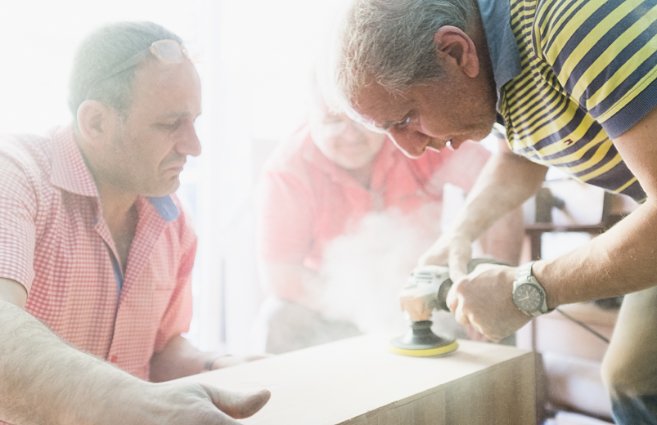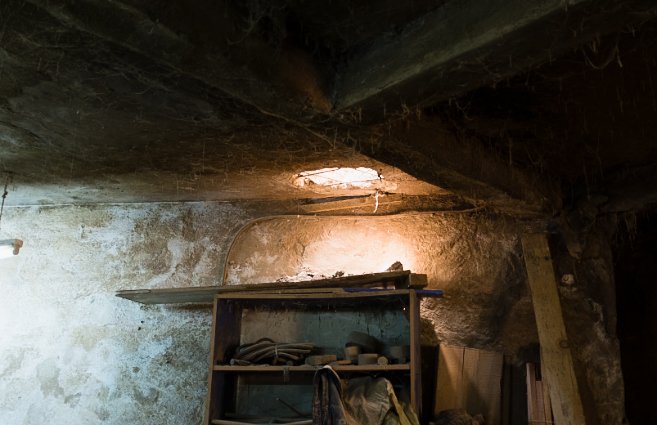Dirty Box, 2016
new media <shadow machine>
Emerging from my research project on “Craftsmanship In Istanbul”, Dirty Box tells the story of crafts in Istanbul.
Istanbul carries different images to different minds. While walking in the city, I let my body find its own path. Bigger streets carry me to smaller alleys, shadowy rooms, underground studios. Through conversations, untold stories unfold and shape spaces. First, I discovered that my body follows the traces of dirt; where work, material and patience meet. Later I have realized “dirt” is the visual evidence of labor. My path passes from a variety of craftsmen studios. I watch how the limits of materials are forced and shaped by the know-how of the masters. I witness how the tools act like a part of the craftsman’s body with the knowledge coming from the experiences of the past generations.
Hand labor is losing its social and economic value day by day. Craftsmanship in Istanbul is disappearing, with all the knowledge gained over generations. Accelerating industrialisation, urban transformation and gentrification not only kill crafts culture and its know-how; they also diminish their existence and importance in the history. The paths I have been following in Istanbul also became my field research. Making the dying traditional crafts visible by documentation, integrating and maintaining them in the existing system became my long-term ambition.
“Over the past few decades, processes of globalisation and neoliberalism have crept into many cities around the world. While they have resulted in short-term profit for some, they have also wiped away the local heritage of specific places. In fact, these processes are not entirely new: in the early twentieth century, the Marxist philosopher Walter Benjamin lamented shifts in the experience of daily life in cities, such as the loss (via capital) of chaotic and mysterious urban spaces, cluttered bazaars and festering canals.
The city of Istanbul, in particular, which has long been prized both locally and abroad for its labyrinthine and mysterious urban landscape, and for its unique traditions in craft, food, architecture and labour, has experienced rapid changes in recent years. There have been many forced transfers of people, and as the city loses its individual character, centuries-old traditions and handicrafts are also vanishing.
Bilal Yilmaz’s Dirty Box (2016) documents this passing of traditions of skilled labour due to recent changes in urban life in Istanbul. The artist photographed craftsmen who employ artisanal knowledge passed down by generations. These images are displayed via a mechanical ‘shadow box’, a portable wooden container that transforms into a projector and screens a map of Istanbul onto the wall, and with it the sites and practices of the varying dying crafts of the city. For Yilmaz, amid the processes of cleaning up cities for and by global capital, ‘dirt’ stands for the elusive, unexpected and chaotic aspects of cities: the historical, material debris, manual labour and crafts, or the gritty sense of specificity that is the first to go as cities are homogenised. Dirt, then, is something to be treasured and – as here – affectionately documented. “
Pablo Larios , A Good Neighbour, 15th Istanbul Biennial publication, 2017
“Physical and social barriers are a result of speculative urban development, where big capital is the big winner. The victims are often students, artists and other low-income groups. At the Galata Greek Primary School, Bilal Yılmaz’s mechanical projection maps the disappearance of traditional crafts workshops in central Istanbul.”
Elmgreen & Dragset, A Good Neighbour - Introduction, 15th Istanbul Biennial publication, 2017
Exhibition:
15th Istanbul Biennial, Istanbul, September 2018
#Crafted In Istanbul
Produced in Craft studios of Istanbul:
Wood Lathe: Muammer Çevik, Brass Master: Taylan Usta
Carpenter: Tayfur Kalınlı, Maker: Çağlayan Örge












